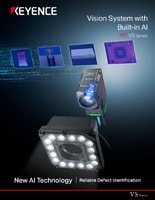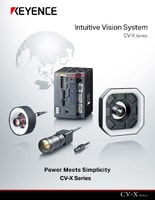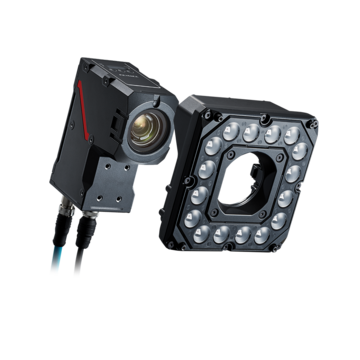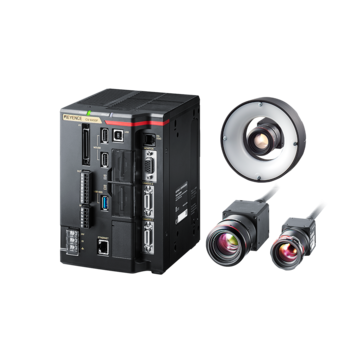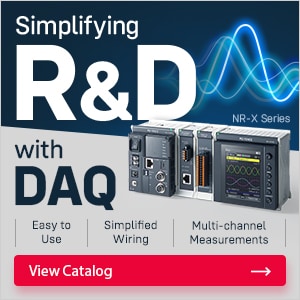Vision Systems
- Vision System with Built-in AI VS series
- Intuitive Vision System CV-X series
- Customizable Vision System XG-X series
- GigE camera and lighting for PC-based machine vision VJ series
- Inline 3D Inspection 3D Vision series
- 3D Vision-Guided Robotics 3D VGR series
- Line Scan Technology Line Scan series
- 2D Vision-Guided Robotics 2D VGR series
- LED Lighting CA-D series
- Lenses (for Machine Vision) CA-L series
- Machine Vision System Database VisionDatabase series
- Aerospace
- Automation Equipment/Machine Building
- Automotive
- Commodities
- Defense
- Electric Vehicles
- Electronic Device
- Fabric/Textile
- Food/Beverage Packaging
- Logistics
- Machine Tools
- Marine
- Medical Device Manufacturing
- Mining/Metals
- Paper Manufacturing
- Pharmaceuticals
- Printing
- Semiconductor/Manufacturing Electronics
- Solar
- Tobacco
- Vision-Guided Robotics
How Vision Systems Ensure Accurate OCR in Food & Beverage Manufacturing
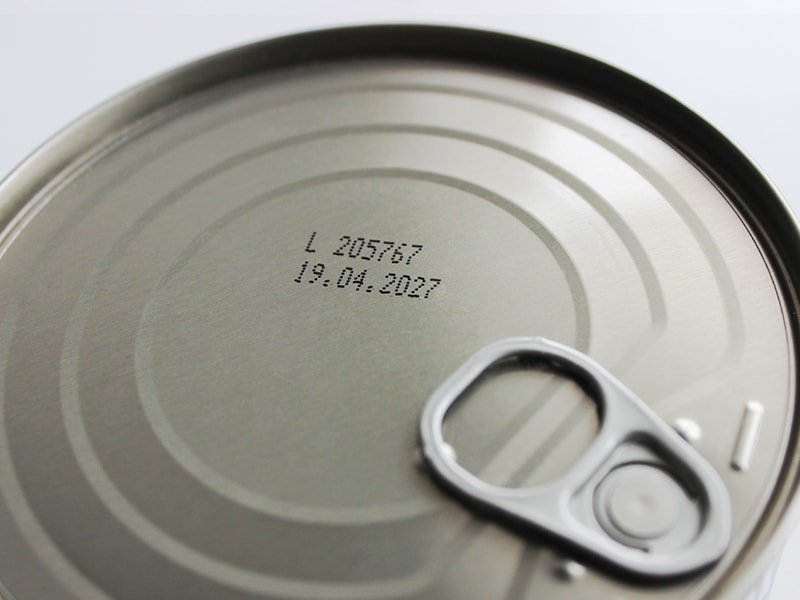
The food and beverage industry often relies on the high precision of vision systems to ensure the integrity of otherwise easily damaged or deformed packaging. Additionally, the use of such systems extends beyond checking for packaging defects.
Vision systems are used to check printed date coding information during packaging and logistics operations, preventing expired or expiring perishable goods from ever reaching end consumers.
As such, these systems present an invaluable link in the supply and production chains that aim to deliver quality products, from raw material selection to the end product that reaches the consumers.
This guide will discuss how vision systems ensure accurate Optical Character Recognition (OCR) in food and beverage manufacturing.
Challenges of Accurate Expiration Date Verification
Accurate expiration date verification in the food and beverage industry is essential for product safety and regulatory compliance. However, the process isn’t without its challenges, especially in the high-speed manufacturing environment, such as food and beverage bottling and packaging plants, where hundreds to thousands of products are packaged every minute.
Most of the challenges associated with expiration date verification are related to the packaging material and the ink used in labeling. A mismatch between the printing method, printing ink, and the substrate being printed on can cause poor legibility. Environmental factors, such as lighting, dust, and moisture, further exacerbate these challenges.
Additionally, the sheer variety of packaging, designs, and text placement often requires a more flexible OCR optical
character recognition vision system capable of recognizing and interpreting information accurately and at high speeds.
Failure to correctly verify expiration dates and date coding on product and lot packages can lead to significant issues down the supply chain, including regulatory fines, product recalls, and severe health risks for consumers, which puts your company at financial and reputational risk.
Fortunately, KEYENCE’s VS Series delivers rapid machine vision solutions for a wide range of applications, including Optical Character Verification (OCV) for the food and beverage industry and all other adjacent industries, such as logistics.
Curious about our pricing?
Click here to find out more.
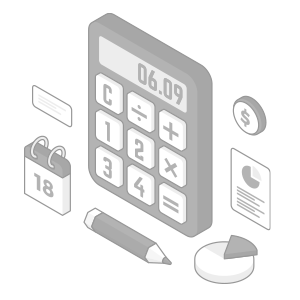
The Role of OCR Vision Systems in Expiration Date Verification
The role of OCR in food and beverage manufacturing is quality assurance, or making sure that the printed expiration dates are correct and whether or not the product has passed its shelf life or expiration date—the latter is vital for safety and compliance.
Most OCR of printed labels, food and beverage cartons, and a variety of other packaging was done manually after the printing process was completed. Despite being time-consuming, that process was necessary, as it ultimately presented the products with poor-quality print or products that have expired from reaching end-consumers.
However, correcting poor and faulty printing would incur additional costs, most of which could have been avoided with proper technical implementations. The flawed system was complemented by the manual selection of date-coded products and their labels during production, which would undergo quality assurance checks and print inspections.
This reduced the risks of coding errors across the entire batch, but checking each individual product within the whole batch wasn’t financially viable or practical. KEYENCE’s OCV addresses many of these issues; the VS Series machine vision system allows every single product to undergo visual date coding inspection.
With every label and package undergoing thorough inspection, the margin for error is significantly lower compared to previous inspection methods because the OCV system helps detect printing issues or date coding issues as soon as they occur.
This allows operators and technicians to address printing or coding errors before resuming manufacturing or logistics operations, which significantly reduces financial loss associated with downtime, recalls, corrections, and human error.
We’re here to provide you with more details.
Reach out today!

How OCR Vision Systems Help in Preventing the Distribution of Expired Products
OCR character verification systems aren’t just employed in food and beverage manufacturing, production, and packaging facilities. They’re also extensively used in logistics for all sorts of operations.
For example, the food and beverage products are typically packed in volume packages at the production/packaging company, where the date coding is applied on individual packages, and that date coding is also implemented into volume coding.
OCV systems rely on high-resolution cameras, coupled with sophisticated image processing software, to enhance and decipher text under various conditions, as well as derive and verify the printed information.
However, OCV systems don’t just check legibility and date coding information accuracy. They also cross-reference the printed information with the current set and perform all sorts of checks, such as whether or not the inspected product is within its expiration date.
By providing reliable, real-time verification of expiration dates, OCV systems act as critical checkpoints in the production line, ensuring that only those products with valid expiration dates proceed to distribution, significantly reducing the risk of expired products reaching consumers.
This helps maintain industry compliance and protects the consumer’s health, your business from financial loss associated with product recalls or legal resolutions, and your brand reputation.
Benefits of Relying on OCR
Companies that use OCR typically report lower recall rates—which ties into lower financial loss—and increase customer trust, which is important for long-term success in the competitive market.
Additionally, OCR vision systems usually collect vast amounts of data besides the data they’re programmed to monitor. This data can be analyzed to further refine the production process, which enhances the overall effectiveness of your business and contributes to the overall improvements in product quality.
Summary
KEYENCE offers a comprehensive range of precision measurement instruments and vision systems for various applications, including OCR systems designed to ensure accurate OCR in food and beverage manufacturing.
If you’re looking to upgrade your existing production line, don’t hesitate to contact KEYENCE and inquire about the possible integrations of your existing setup with KEYENCE’s equipment.
Contact us to learn more about how our advanced technology can help take your business to the next level.
Contact Us
Related Products
Industries
- Aerospace
- Automation Equipment/Machine Building
- Automotive
- Commodities
- Defense
- Electric Vehicles
- Electronic Device
- Fabric/Textile
- Food/Beverage Packaging
- Logistics
- Machine Tools
- Marine
- Medical Device Manufacturing
- Mining/Metals
- Paper Manufacturing
- Pharmaceuticals
- Printing
- Semiconductor/Manufacturing Electronics
- Solar
- Tobacco
- Vision-Guided Robotics

